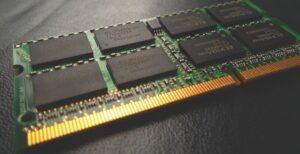Tesla Versus Toyota
Tesla and Toyota are two of the most influential players in the automotive industry. Tesla, known for its electric vehicles and cutting-edge technology, has gained a substantial following and disrupted the traditional automotive market. On the other hand, Toyota, a global leader in the industry for decades, has built a reputation for quality, reliability, and innovation. Although these companies differ in their approach, they both hold significant positions in the market. In this article, we will compare Tesla and Toyota in various aspects to understand their strengths and weaknesses.
Key Takeaways:
- Tesla is known for its electric vehicles and groundbreaking technology.
- Toyota has a long-standing reputation for quality, reliability, and innovation.
- Tesla focuses on luxury and high-performance vehicles.
- Toyota offers a wide range of vehicles, from compact cars to trucks and SUVs.
- Tesla leads in electric vehicle technology, while Toyota excels in hybrid technology.
- Tesla’s direct-to-consumer sales model contrasts with Toyota’s traditional dealership network.
Technological Advancements
When it comes to technological advancements, **Tesla** has pushed the boundaries of innovation with its electric vehicles. With features like autopilot capabilities and over-the-air updates, Tesla has revolutionized the driving experience. *Tesla’s electric powertrain technology has paved the way for the widespread adoption of electric vehicles, challenging the dominance of internal combustion engines.* On the other hand, Toyota has been a pioneer in hybrid technology with its successful Prius lineup, which incorporates both electric and gasoline powertrains. The expertise of Toyota in developing hybrids has allowed them to offer efficient and eco-friendly vehicles to a broader market.
Performance and Variety
Tesla’s focus on luxury and high-performance vehicles has established it as a leader in the electric vehicle market. Models like the Tesla Model S and Model X offer incredible acceleration and range. *Tesla’s Model S, known as the “quickest car in the world,” has gained recognition for its acceleration from 0 to 60 miles per hour in just a few seconds.* In contrast, Toyota offers a wide range of vehicles to cater to various customer needs. From compact cars like the Corolla to trucks like the Tacoma and SUVs like the RAV4, Toyota provides a diverse lineup suitable for different preferences and lifestyles.
Environmental Impact and Sustainability
| Factor | Tesla | Toyota |
|---|---|---|
| Electric Vehicle Offering | Extensive | Limited (Hybrids and Plug-in Hybrids) |
| Carbon Emissions Reduction | Significant | Meaningful (Hybrid Technology) |
| Infrastructural Support | Expanding Supercharger Network | Strong Dealer Network with Service Centers |
From an environmental standpoint, **Teslas** are fully electric vehicles that produce zero tailpipe emissions, making them a greener option compared to Toyota’s hybrid approach. *By solely relying on electricity as a power source, Tesla reduces the carbon footprint associated with traditional gasoline-powered vehicles.* However, it is important to note that Toyota has made significant progress in reducing carbon emissions through its hybrid technology. With a vast number of hybrid vehicles on the road, Toyota has had a meaningful impact on mitigating greenhouse gas emissions by promoting better fuel efficiency.
Marketing and Sales Approach
Tesla’s marketing strategy revolves around direct-to-consumer sales, bypassing traditional dealership networks. With their own showrooms and online ordering system, Tesla offers a unique buying experience tailored to their brand. This approach allows **Tesla** to have more control over the customer journey and deliver a consistent brand experience. Conversely, Toyota follows the traditional dealership model, where customers interact with sales representatives and rely on dealerships for sales and service. Toyota’s extensive dealership network ensures availability, convenience, and efficient after-sales service across a wide range of markets.
Comparison of Market Share (2020)
| Company | Market Share |
|---|---|
| Tesla | 2.05% |
| Toyota | 9.38% |
As of 2020, Tesla holds a smaller market share compared to Toyota. While Tesla is rapidly growing and gaining prominence in the electric vehicle market, Toyota’s long-established presence in the industry has secured a more significant market share. Nevertheless, Tesla’s market share is increasing steadily as the demand for electric vehicles continues to rise.
The Future of Automotive
The automotive industry is evolving at an unprecedented pace, and both Tesla and Toyota are well-positioned to shape the future. Tesla’s advancements in electric vehicle technology and commitment to sustainable transportation have catapulted them into the spotlight. Meanwhile, Toyota’s vast experience, reputation for quality, and expertise in hybrid technology ensure that they will remain a formidable player in the market.
It is clear that both Tesla and Toyota contribute significantly to the industry, each with its unique strengths and focus. Whether it’s Tesla’s groundbreaking electric vehicles or Toyota’s commitment to quality and wide-ranging vehicle options, consumers have an array of choices that cater to their needs and preferences. Undoubtedly, as the automotive landscape continues to evolve, both Tesla and Toyota will continue to play vital roles in shaping the future of mobility.

Common Misconceptions
Tesla Versus Toyota
One common misconception people have about the Tesla versus Toyota debate is that Tesla is much more innovative and technologically advanced compared to Toyota.
- Toyota has been actively investing in research and development, constantly introducing new technologies in their vehicles.
- Tesla may be popular for its electric cars, but Toyota has also been working on various electric models and hybrid technology.
- Both companies have made significant contributions to the automotive industry, and it is unfair to underestimate Toyota’s efforts in the name of Tesla’s prominence.
Tesla Versus Toyota
Another misconception is that Tesla vehicles are more reliable and have fewer quality issues compared to Toyota.
- Toyota consistently ranks high in reliability and customer satisfaction surveys conducted by reputable organizations.
- Tesla, being a newer player in the market, has faced some challenges in terms of production quality and reliability.
- While Tesla has made strides to improve their manufacturing processes, it is not fair to assume that Toyota is less reliable based solely on the reputation of Tesla.
Tesla Versus Toyota
Some people believe that Tesla is the future of the automotive industry, and Toyota’s dominance will soon be overtaken.
- Toyota has a long-established presence in the automotive industry, with a strong market share and global reach.
- While Tesla has certainly disrupted the industry with its electric vehicles, it is still a relatively young company compared to Toyota’s decades of experience.
- The future of the automotive industry is uncertain, and it is premature to conclude that Tesla will take over Toyota’s position as the dominant force.
Tesla Versus Toyota
Many people assume that Tesla vehicles are more affordable in the long run due to lower fuel and maintenance costs.
- While Tesla cars indeed have lower fuel costs as compared to traditional gasoline vehicles, the initial cost of purchasing a Tesla is higher.
- Toyota vehicles, especially their hybrid models, offer excellent fuel efficiency and lower maintenance costs, making them cost-effective options as well.
- It is crucial to consider the total cost of ownership, including purchase price, fuel/maintenance costs, and resale value, when comparing the affordability of Tesla and Toyota vehicles.
Tesla Versus Toyota
Lastly, some people assume that Tesla is an American company, while Toyota is a Japanese company.
- Tesla, led by Elon Musk, is indeed an American company based in California.
- Toyota, on the other hand, is a Japanese multinational corporation with a significant presence in the United States.
- While Tesla is hailed as a symbol of American innovation, it is essential to recognize Toyota’s contributions to the American automotive market as well.

Tesla Model 3 Sales in 2020
In 2020, Tesla’s Model 3 became the best-selling electric car worldwide. The table below presents the annual sales figures for the Model 3.
| Year | Sales |
|---|---|
| 2017 | 1,772 |
| 2018 | 146,295 |
| 2019 | 300,633 |
| 2020 | 365,240 |
Toyota Prius Hybrid Sales in 2020
The Toyota Prius has long been a leader in the hybrid car market. The table below showcases the annual sales numbers for the Prius in 2020.
| Month | Sales |
|---|---|
| January | 2,849 |
| February | 3,094 |
| March | 4,657 |
| April | 3,321 |
Tesla Supercharger Network
Tesla’s Supercharger network provides rapid charging for Tesla electric vehicles. The table below illustrates the growth of the Supercharger network.
| Year | Number of Superchargers |
|---|---|
| 2012 | 6 |
| 2014 | 130 |
| 2016 | 654 |
| 2018 | 1,422 |
Toyota Hybrid Models
Toyota offers a wide range of hybrid vehicles in its lineup. The table below provides an overview of Toyota’s hybrid models.
| Model | Combined MPG | Starting Price |
|---|---|---|
| Prius | 56 | $24,525 |
| Camry Hybrid | 52 | $27,270 |
| RAV4 Hybrid | 41 | $28,500 |
| Highlander Hybrid | 36 | $38,000 |
Tesla Model S Performance
The Tesla Model S is known for its impressive performance capabilities. The table below demonstrates the acceleration and top speed of different Model S variants.
| Variant | 0-60 mph Time | Top Speed |
|---|---|---|
| Model S Long Range Plus | 3.7 seconds | 155 mph |
| Model S Performance | 2.3 seconds | 163 mph |
Toyota Safety Sense Technologies
Toyota prioritizes safety and equips its vehicles with advanced safety technologies. The table below highlights some of the features included in Toyota Safety Sense.
| Technology | Description |
|---|---|
| Pre-Collision System (PCS) | Detects potential collisions and warns the driver; applies braking assistance if needed. |
| Lane Departure Alert (LDA) | Monitors lane markings and alerts the driver if the vehicle drifts out of the lane. |
| Dynamic Radar Cruise Control (DRCC) | Maintains a set distance from the vehicle ahead and adjusts speed accordingly. |
| Automatic High Beams (AHB) | Automatically switches between high and low beams based on surrounding traffic. |
Tesla Autopilot Features
Tesla’s Autopilot functionality brings advanced driver-assistance capabilities to its vehicles. The table below outlines some of the features included in Tesla’s Autopilot system.
| Feature | Description |
|---|---|
| Traffic-Aware Cruise Control | Maintains a set speed and distance from the vehicle ahead, adapting to traffic conditions. |
| Autosteer | Assists with steering within marked lanes on highways and motorways. |
| Autopark | Helps automatically parallel park or perpendicular park your vehicle. |
| Summon | Allows the car to drive itself to the owner within a short distance. |
Tesla Battery Range Comparison
Tesla vehicles are renowned for their impressive electric range. The table below compares the estimated ranges of different Tesla models.
| Model | Estimated Electric Range |
|---|---|
| Model 3 Standard Range Plus | 263 miles |
| Model Y Long Range | 326 miles |
| Model S Long Range Plus | 391 miles |
| Model X Long Range Plus | 371 miles |
Toyota Electric Vehicle Lineup
While Toyota has been a pioneer in hybrid technology, the company is also expanding its electric vehicle offerings. The table below presents Toyota’s current electric vehicle lineup.
| Model | Electric Range |
|---|---|
| Toyota Prius Prime | 25 miles (EV mode) |
| Toyota RAV4 Prime | 42 miles (EV mode) |
Throughout the automotive industry, the competition between Tesla and Toyota has captured attention. Both manufacturers are renowned for their innovative approaches and commitment to environmentally friendly transportation. Tesla’s Model 3 has emerged as a global bestseller in the electric vehicle market, with steadily increasing sales year after year. Meanwhile, Toyota’s Prius has long held the crown as a leading hybrid vehicle. These tables provide a glimpse into the various aspects of both Tesla and Toyota, such as sales figures, charging infrastructure, performance, safety technologies, and even their respective ranges. As the world continues to embrace sustainable mobility, the choices and advancements offered by these two automotive giants play a crucial role in shaping the future of transportation.
Frequently Asked Questions
Question: What are the key differences between Tesla and Toyota?
Tesla and Toyota are two distinct automakers with different approaches to vehicle manufacturing. Tesla focuses primarily on producing electric vehicles, while Toyota offers a wide range of vehicles, including hybrids. Tesla’s vehicles are known for their innovative technology, while Toyota has a reputation for reliability and fuel efficiency.
Question: Which company produces more vehicles annually, Tesla or Toyota?
Toyota is a much larger automaker compared to Tesla. As of the latest data available, Toyota produces significantly more vehicles annually than Tesla. However, Tesla’s production has been growing rapidly in recent years.
Question: Are Tesla cars less reliable than Toyota cars?
Reliability ratings may vary between different models and years, but historically, Toyota has had a reputation for producing reliable vehicles. As Tesla is a relatively young company, it may face some challenges in terms of long-term reliability compared to Toyota.
Question: Which brand offers a wider range of models, Tesla or Toyota?
Toyota offers a wider range of models compared to Tesla. Toyota has been manufacturing automobiles for many decades and provides customers with options ranging from compact cars to SUVs and pickup trucks, while Tesla currently focuses on electric sedans, SUVs, and sports cars.
Question: How do the driving ranges of Tesla and Toyota electric vehicles compare?
Tesla electric vehicles generally have longer driving ranges compared to Toyota’s electric vehicles. Tesla has made significant advancements in battery technology, allowing their vehicles to travel further on a single charge. However, it is important to note that newer Toyota models may offer improved driving ranges as the technology evolves.
Question: Which company offers a more extensive charging infrastructure for electric vehicles?
Tesla has invested heavily in building its Supercharger network, which provides Tesla owners with access to fast charging stations across many regions. While Toyota offers hybrid vehicles with excellent fuel efficiency, it does not have a comparable dedicated charging infrastructure for electric vehicles.
Question: Are Tesla vehicles more expensive than Toyota vehicles?
In general, Tesla vehicles tend to have higher price points compared to Toyota vehicles. Tesla places a focus on cutting-edge technology and luxury features, which can contribute to the higher cost. Toyota aims to offer a range of vehicles at various price points, including more affordable options.
Question: Do Tesla cars have more advanced autonomous driving capabilities than Toyota cars?
Tesla incorporates advanced autonomous driving features, such as Autopilot, into its vehicles. While Toyota also offers some semi-autonomous driving features, Tesla has been at the forefront of autonomous technology development. However, it is important to note that autonomous driving technology is rapidly evolving, and both companies may introduce new features in the future.
Question: Which brand has a stronger presence in the electric vehicle market?
Tesla has gained significant recognition in the electric vehicle market due to its pioneering efforts and focus on electric vehicles. However, Toyota has also made strides in the electric vehicle sector, particularly with its hybrid offerings. Both companies have a presence in the market, but Tesla is often associated more directly with electric vehicles.
Question: Can I compare the fuel efficiency between Tesla electric vehicles and Toyota hybrid vehicles?
While it is not a direct comparison, it is worth noting that Tesla electric vehicles operate solely on battery power and do not consume traditional fuel. Toyota hybrid vehicles, on the other hand, utilize a combination of an internal combustion engine and electric power for improved fuel efficiency. Comparing the fuel efficiency between these two types of vehicles can be complex and depend on several factors such as model, driving conditions, and individual driving habits.




